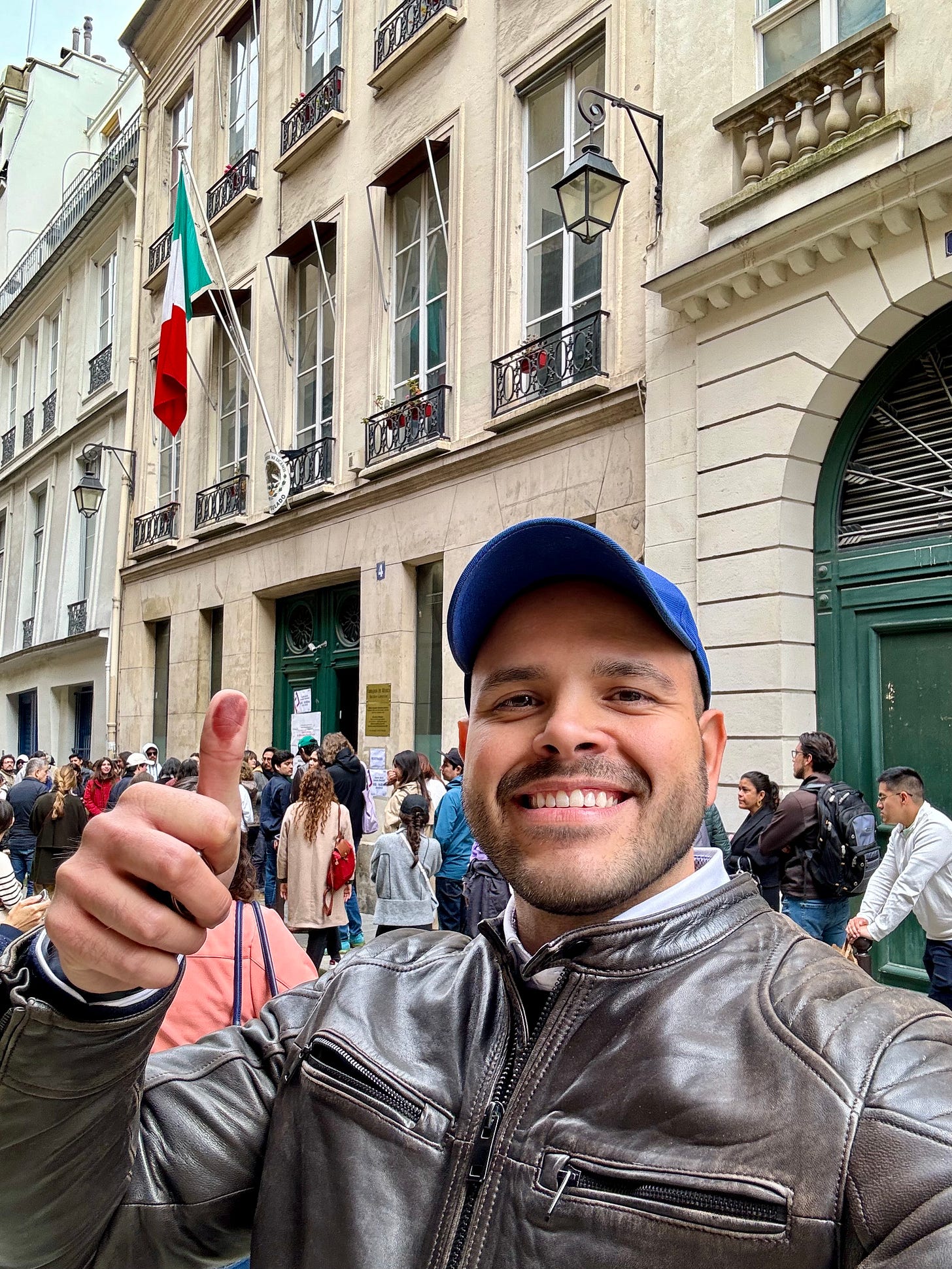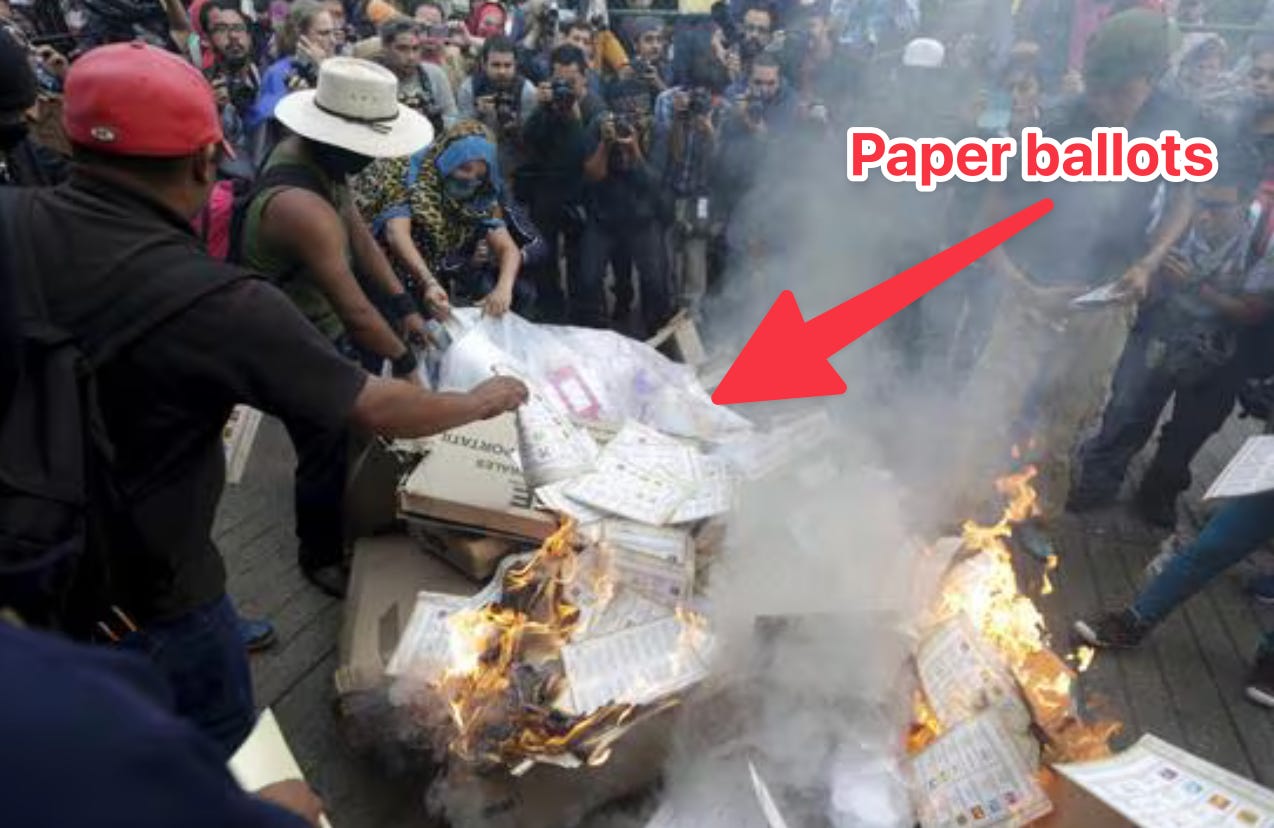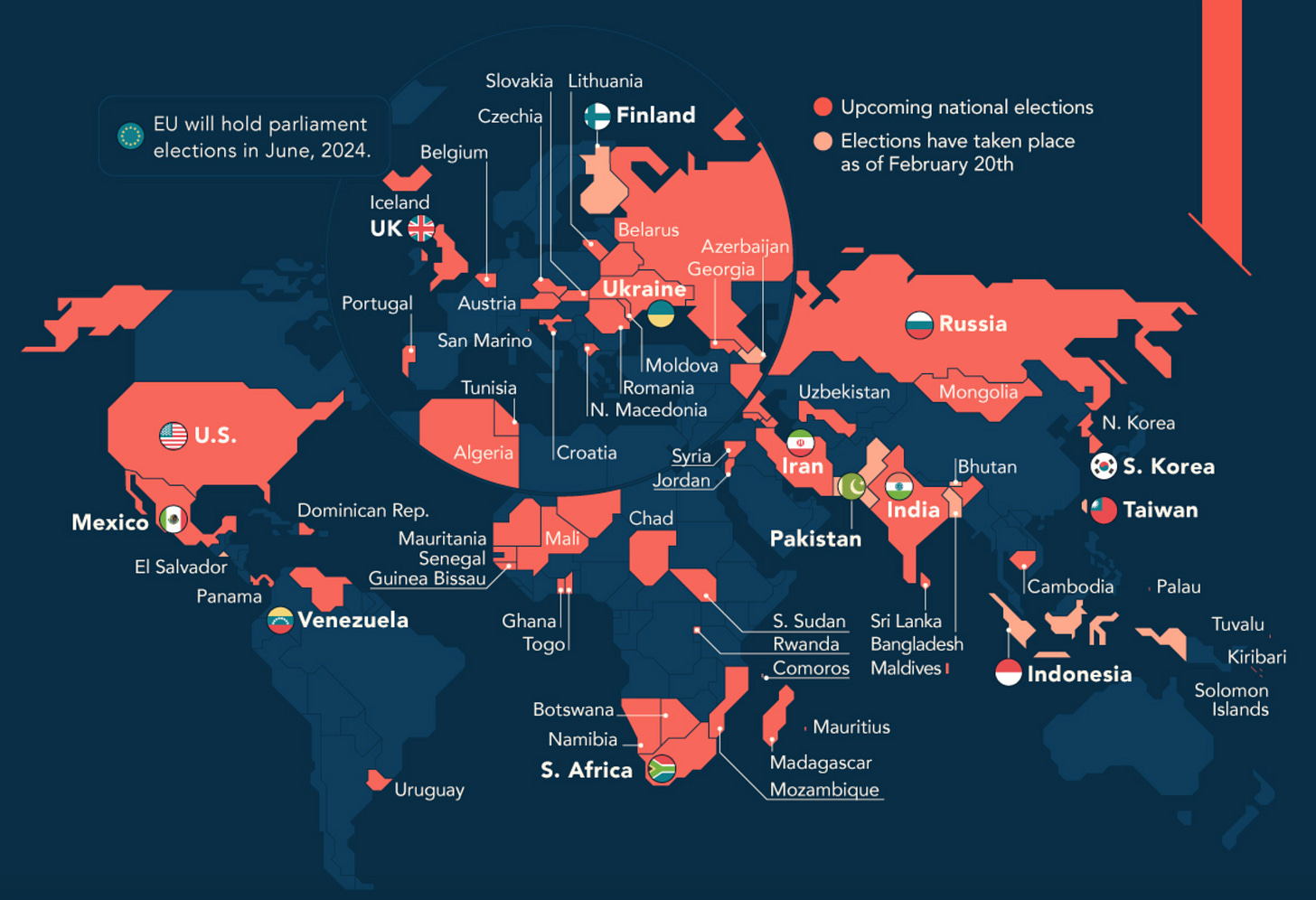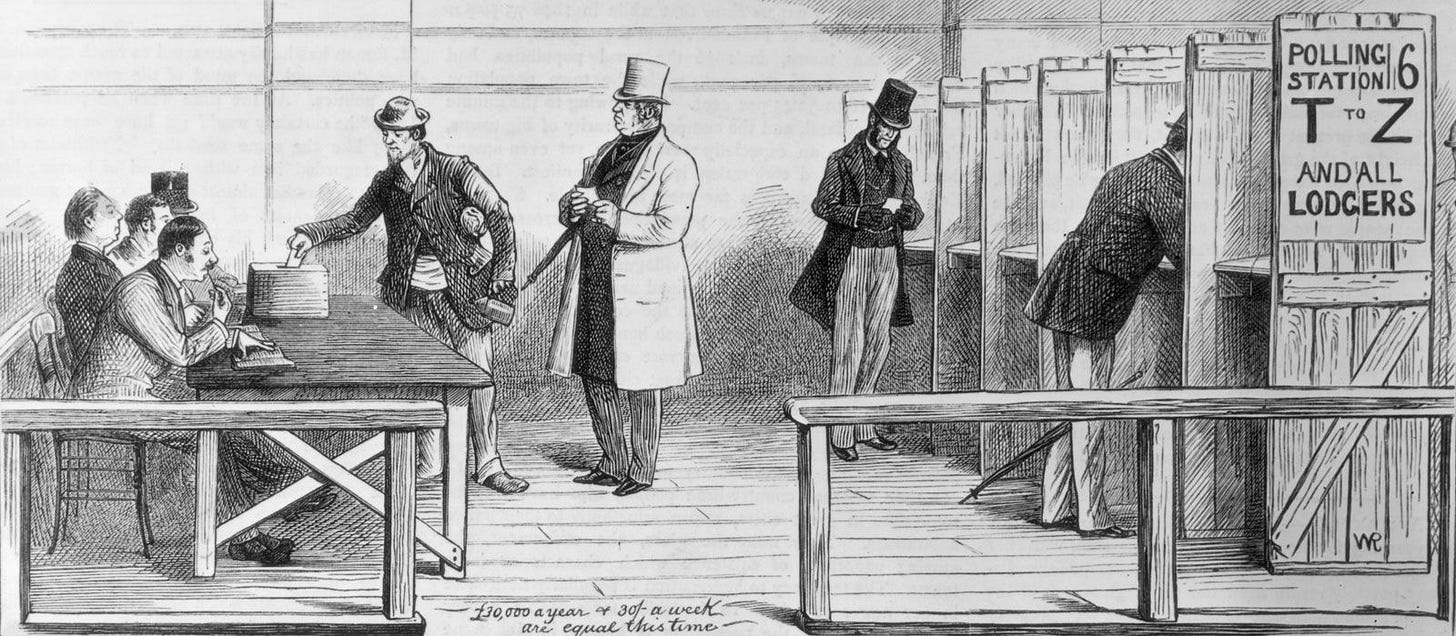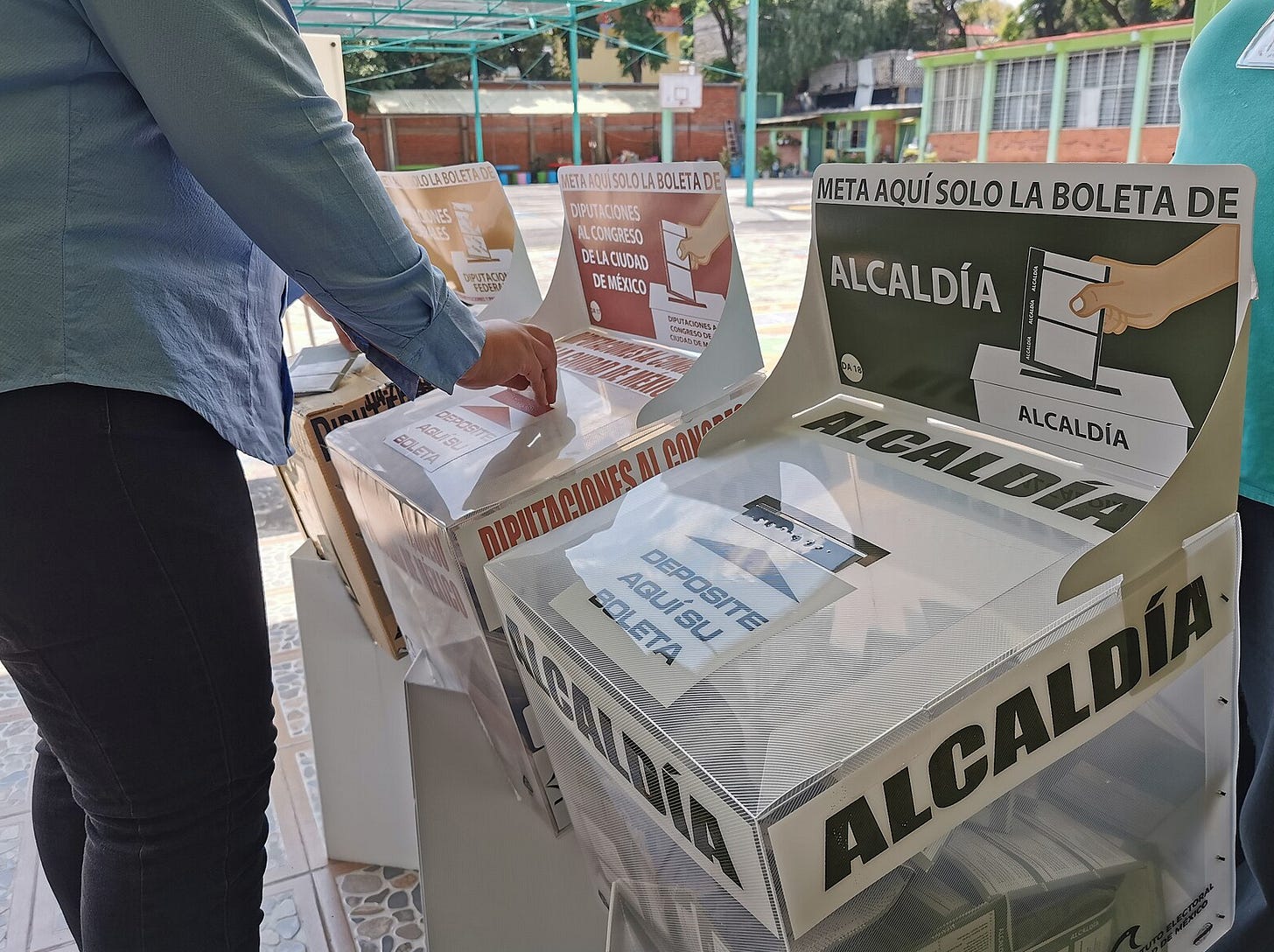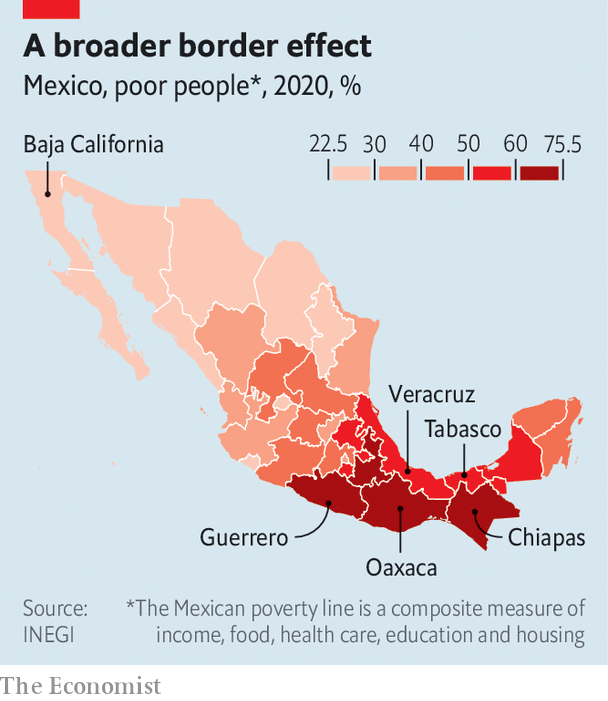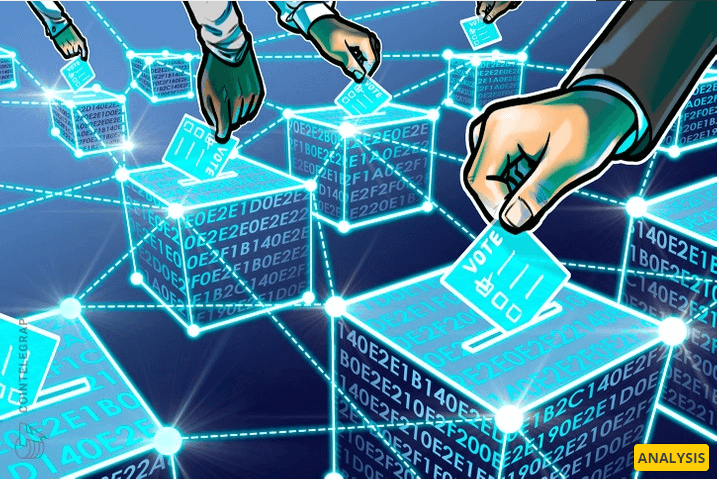The Future of Elections
How Technology Is Desperately Needed In This Space
Last week, I spent 7 hours standing in line to cast my vote for the Presidential Mexican elections. Definitely not the way I imagined spending my Sunday morning.
Many people asked me with surprise why I did that. Why would I wait for so long to cast a vote. WHYYY??? Because it matters.
I believe in democracy. In giving everyone the ability to elect the people who will govern the country where they live in. It’s something so important that it merits standing in line for hours and hours. It’s one of those things you do out of principle.
I’d love to tell you that elections are fair and that everyone who votes gets a shot. But it couldn’t be farther away from the truth.
In reality, elections are a controversial topic. One in which fraud, corruption, and abuse tend to happen quite frequently. One in which the actual outcome can be rigged with dirty tactics.
Let me give you an example. According to a report from the Mexican government, there are approximately 103,000 Mexicans living in Europe. However, there was a limit of 1,500 ballots per consulate. Here’s the kicker … there were only two consulates that allowed voting: the one in Paris and the one in Madrid. A total of 3,000 ballots for 103,000 people.
Even if 80% of those 103,000 people voted online, the remaining 20% would not have a shot.
I was there. And there were easily more than 1,500 people in that line at the Paris consulate. Not everyone was able to cast a vote. Starting right there … something is just off.
This didn’t happen just in the Mexican consulates in the European Union. But also in the Mexican consulates in the United States — not to mention in Mexico itself, where people were seen burning voting booths, annulling ballots, and meddling with the election process.
In this day and age, where we can do most things securely with our cell phone and an internet connection, it’s quite mind-blowing that elections have to be so painful.
This year alone, we expect two BILLION voters to participate in elections. Over 60 countries will hold national elections, including some of the biggest democracies in the world.
So … why isn’t this easier like sending a photo from your phone? Everything tells me that it should be that easy.
Before we answer that, let’s understand one thing:
How did we get here?
The use of paper ballots in elections dates back to ancient Rome and Greece. But the modern concept of the paper ballot was introduced with the Australian ballot, which provided privacy and confidentiality for voters.
Many years later … in the 1990s, the direct recording electronic (DRE) voting machines were introduced. This revolutionized the voting process by speeding up the process and making the vote counts more accurate.
However, as with every technological innovation, there was a lot of controversy. Concerns about the security and reliability of electronic voting systems were brought up. In the past few years, hacking, software glitches, and the lack of a paper trail for voter verification have raised questions about the integrity of electronic votes.
The most famous example being the 2016 U.S. presidential election, in which Russia allegedly interfered with the electoral process. There was even a whole movie about this called “The Great Hack”. Watch it if you haven’t already.
OK … back to our question.
Why isn’t voting easier?
There are three main reasons why voting is hard: logistical challenges, technological challenges, and socio-political challenges.
Let’s start with the first one.
Logistical challenges … where you live matters.
This one is probably the easiest to explain. In a country like Mexico, which has close to 130 million people, a lot of people live in rural and remote areas. These towns lack the required infrastructure needed for convenient voting. From an internet connection to secure locations, to the right training for people who volunteer as part of the institutions which facilitate voting.
Technological challenges … 2024 feels like 1984.
This is where it gets interesting. There’s two main types of voting mechanisms in elections. Paper ballots and electronic ballots.
With paper ballots, the count happens manually. Each booth has a limited amount of papers where people can select the candidate and political party they want. However, as with anything manual, this is prone to error. Or worse, manipulation.
With electronic ballots, you would think the process is more secure. But no. Enter cybersecurity. If your vote goes into a piece of software that can be easily tampered with because it lacks authentication, segregation of duties for different types of users, data access rights, among other things, you can be sure that the process will not be fair. And in consequence, someone who doesn’t deserve to win an election will end up sitting in a position of power.
Socio-political challenges … It all starts with fear.
This is probably the most important one. Political instability breeds all sorts of issues. When incumbents sense the fear of losing political power and influence, they will resort to voter intimidation, violence, and finger-pointing. Anything that will make them keep that power for another few years.
If you ask me, it was voter intimidation which caused Mexico’s left to win. Embodied by the phrase: “vote for your President’s political party because if you don’t, they’ll take away all the free money you’re getting”.
And when a few thousand pesos is the difference between feeding your kids and starving them, the vote is the easiest decision you can make. When 50 million people live below the national poverty line (chart below), they don’t focus on the macro (i.e. the country’s wellbeing), but the micro (i.e. their family’s wellbeing). And if I were in their shoes, I’d probably do the same.
There was a silver lining in these elections, though. The number of people who went to cast a vote was massive. Something I’ve never seen before. Which means democracy is alive. But we just have to fix the systems and institutions (and also the mentality of a few).
And in this day and age of technological innovation, I’m hopeful that we’ll get there.
Can technology augment democracy?
I’d like to think so. Here’s what’s coming …
Advancements in blockchain technology might help create a tamper-proof ledger for recording votes. One that we can trust is transparent, accurate, and anonymous. One that we’ll be sure won’t be manipulated by others without the consent of the majority.
Biometrics will help with voter authentication. Just imagine registering and voting using facial recognition or your fingerprint. The amount of time this would save for a lot of people would be substantial.
Artificial intelligence could analyze anomalies in voting behavior and keep tabs on social media misinformation. We could have a real-time voting count and monitor progress across the country, which would help campaign managers identify and incentivize people who typically abstain in elections.
That’s just a few examples. Another important thing is the collaboration between sectors.
We need more consortiums and partnerships between the public sector and technology companies. And not just big tech, but also startups. I’m hopeful that engineers and product managers who typically focus on creating SaaS products for the consumer, will rather focus on products and services for bigger causes like democratic and fair elections. We need more of that.
And definitely, I hope that elected officials and heads of institutions invest more money in the right infrastructure to allow for fairer elections. This is one area where spent can be justified.
It’s not an easy task by any means. But surely one worth fighting for.
If you live in a country where there’s elections soon, what are your thoughts? I’d love to hear from you.
Wishing everyone a fantastic start of the week.
Until next time,
Antonio.


